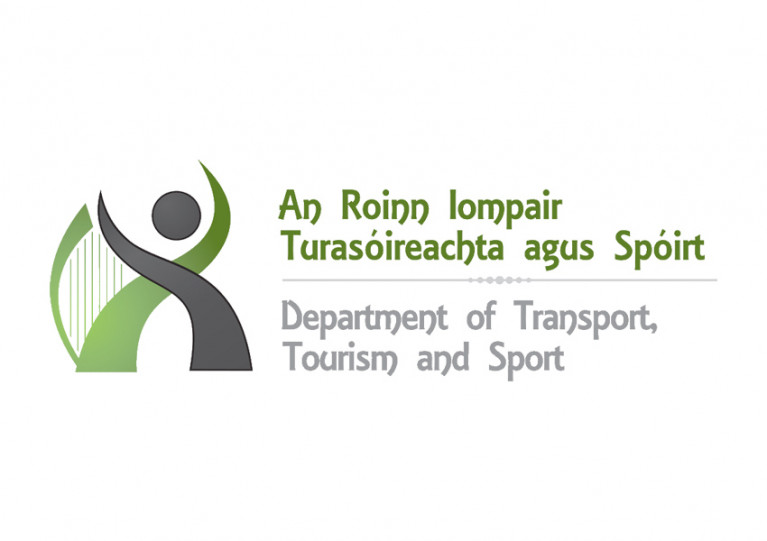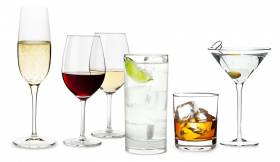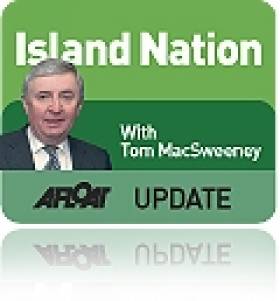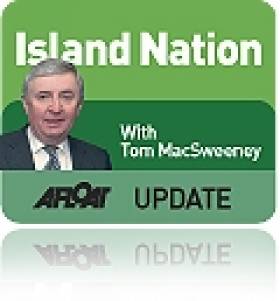Displaying items by tag: Irish Maritime Administration
Irish Maritime Administration Launches Engagement Survey
A new survey from the Irish Maritime Administration (IMA) of the Department of Transport encourages feedback regarding its communication with stakeholders and service users.
Marine Notices are one method used to communicate important information by the IMA and its divisions, which include the Marine Survey Office, Maritime Transport Division, Maritime Safety Policy Division, Marine Mercantile Office, Maritime Service Division and the Irish Coast Guard.
“The survey is an opportunity for you to provide helpful feedback and will assist the IMA to improve how communicate sand engages with its many and varied stakeholders and service users,” the administration says.
Prohibitions on the Consumption of Alcohol and/or Drugs When Operating Recreational Craft
The Irish Maritime Administration at the Department of Transport, Tourism and Sport has issued a Marine Notice to remind the public of the law in relation to being under the influence of alcohol and / or drugs when operating or while on board a recreational craft or any vessel in Irish waters, or on board vessels or objects being towed by recreational craft.
The recently published Annual Report of the Marine Casualty Investigation Board (MCIB) highlights the fact that alcohol or drug consumption continues to be a factor in marine incidents, including incidents involving recreational craft. Successive MCIB Annual Reports have shown that incidents are occurring where diminished human performance and impairment due to the effects of alcohol and / or drug consumption have been primary causes or contributing factors, leading to the loss of life in some cases. In the recent Annual Report, the MCIB Board reminds all vessel operators of the need to take personal responsibility and to ensure that they are fit to undertake their planned voyage.
The Department of Transport, Tourism and Sport wishes to remind all recreational craft users that it is the responsibility of each individual taking to the water to be mindful of their own safety:
• YOU must take personal responsibility for your actions on the water.
• YOU must avoid alcohol and drugs before or during a voyage.
• If you fail to operate safely and to comply with the law in relation to alcohol and drug consumption YOU put your life and your vessel at risk as well as the lives of others, including members of the rescue services.
• It is against the law to consume alcohol and drugs in circumstances that could affect the safety of others on board or others using Irish waters, or create a disturbance on board or be a nuisance to others using Irish waters.
• Alcohol speeds up the rate of body cooling and thus increases the risk of hypothermia in the event that you fall into the water.
Regulations 8 and 9 of the Pleasure Craft (Personal Flotation Devices and Operation) (Safety) Regulations 2005 [S.I. No. 921 of 2005], as amended, set out the law regarding the consumption of alcohol or drugs while on board a pleasure craft, including prohibitions on operating a pleasure craft while under the influence. Failure to comply with the law can result in a fixed payment of €150 and/or prosecution proceedings which, on summary conviction, can lead to a fine of up to €5,000. A pleasure craft includes personal watercraft, such as jet skis, and fast power craft.
Sections 28 to 30 of the Maritime Safety Act 2005 (No. 11 of 2005) contain a range of provisions relating to the prohibition on operating or being on board a vessel in Irish waters while under the influence of alcohol or drugs, and the associated penalties. These include the following prohibitions:
1. A person in command or in charge or another member of the crew of a vessel in Irish waters (or an Irish ship in waters anywhere) must not operate or control or attempt to operate or control the vessel or carry out any task or duty in relation to the operation or control of the vessel while he or she is under the influence of alcohol or a drug or any combination of drugs, or drugs and alcohol to such an extent as to be incapable of properly controlling or operating the vessel or carrying out the task or duty (section 28).
2. A person on board a vessel in Irish waters (or an Irish ship in waters anywhere) must not consume alcohol or take a drug or any combination of drugs or drugs and alcohol while on board the vessel in circumstances which could affect the safety of persons or create a disturbance or serious nuisance on board the vessel or affect the safety of other persons using Irish waters or constitute a nuisance to such persons (section 30).
3. Failure to comply with the above requirements is an offence and the person is liable on summary conviction to a fine not exceeding €5,000 or to imprisonment for a term not exceeding 3 months or both.
4. If a person in command or in charge or another member of the crew of a vessel is, while on duty, under the influence of alcohol or a drug or any combination of drugs or drugs and alcohol to such an extent that his or her ability to discharge his or her duties is impaired, he or she commits an offence and is liable on summary conviction to a fine not exceeding €5,000 (section 29).
5. A person on board a vessel in Irish waters (or on an Irish ship in waters anywhere) who through any deliberate or reckless action or by reason of being under the influence of alcohol or a drug or any combination of drugs or drugs and alcohol puts at risk or endangers the safety, security or seaworthiness of the vessel or the lives or safety of persons on board commits an offence and is liable on summary conviction to a fine not exceeding €5,000 or to imprisonment for a term not exceeding 6 months or both, or on conviction on indictment, to a fine not exceeding €100,000 or to imprisonment for a term not exceeding 2 years or both (section 32).
Irish Maritime Administration
Department of Transport, Tourism and Sport
Leeson Lane, Dublin 2, D02 TR60, Ireland.
Safety At Sea International Conference Held In Cork
Delegates from 18 countries are attending an international conference on safety at sea in Cork where it has been revealed that, since the sinking of the cruise ship Costa Concordia, the main problem encountered during ship inspections has been with abandon ship and fire drills.
It is the 10th conference of the International Association for Safety and Survival Training – IASST – whose Chairman, Dmitrus Semjonovs, said that continuous research was being done by the organisation to improve safety at sea and advance the saving of lives by promoting safety and survival training.
The Chief Surveyor of the Irish Maritime Administration, Brian Hogan, said that encouraging personal responsibility for everyone at sea, from commercial to leisure, should be the main focus of maritime safety strategy.
The conference is being held at the National Maritime College in Ringaskiddy where the co-ordinator, Capt.Cormac MacSweeney, said that over the two days of discussions, response to emergency situations, from offshore operations to various aspects of shipping and small craft would be discussed. “Survival training is essential to safety at sea and that is vital to everyone who goes to sea.”
'In the Wealth of the Sea Lies Our Hope' So Where is Ireland's Department of The Marine?
#marine – The Irish Maritime Administration (IMA) was established in 2013 to integrate the planning and delivery of all the maritime services of the Department of Transport, Tourism and Sport under a single national office.
The Department's website describes this as "central" to its "drive for more efficient and effective delivery of maritime services."
It is comprised of the Maritime Safety Policy Division, the Marine Survey Office, the Irish Coast Guard, the Maritime Transport Division and the Maritime Services Division.
The IMA, declares the Departmental website, "is developing the maritime transport sector, by facilitating the achievement of international safety levels and by enhancing infrastructure needed to secure employment in the shipping, fishing and leisure sectors."
This weekend The Irish Times reported, in the context of political appointments to State bodies, that the former Minister for Transport, Leo Varadkar, appointed three people without any sea-going experience to the Marine Casualty Investigation Board.
This story has not been denied. The appointments have been defended with the explanation that they were "ensuring that there could be no conflict of interest," according to a Department spokesman. The Irish Times claimed that there was only one member of the Board who had direct marine expertise for the past year.
"No conflict of interest," what exactly does that mean in the context of investigations into marine accidents? The importance of seafaring skills or maritime experience was not highlighted in the quoted explanation from the Department.
The MCI, it seems, uses contracted experts into marine casualties whose reports are submitted to the Board.
The integrity of the individuals concerned is not at issue but it is relevant to ask why this board has had only one member with direct marine expertise.
Is the Department of Transport the correct place for maritime matters?
Moving them into that Department facilitated Government policy which is against the existence of a dedicated Department of the Marine and keeps maritime affairs at a low level in State administration.
Prior to the last General Election both Coalition parties, Fine Gael and Labour, promised a single department to deal with maritime affairs. There was hope for a Department of the Marine again being created. Unsurprisingly, once they got into Government that did not happen. Marine was lumped in with Agriculture, Food and now Defence and aspects such as maritime safety and the ports went to the Department of Transport. Other parts of the maritime brief were put into other Departments, such as Communications and Energy and some seemed to have been lost altogether!
The Government, politicians and officials under the leadership of Taoiseach Enda Kenny, who has several times highlighted his maritime heritage in public, did not see maritime affairs as important enough to merit a full department in an island nation, a country where 95 per cent of exports and imports depend upon the sea.
When he was appointed Minister for Agriculture, Food and the Marine, Simon Coveney, who does have a commitment to maritime affairs, declared that he wanted the maritime aspect of his brief and his title as Minister for the Marine to be publicly recognised. He also indicated his desire to have all maritime matters brought under his department. That did not happen. The Department of Transport strengthened its grasp on aspects of maritime affairs. The establishment of the Irish Maritime Administration within the Department of Transport last year was a further attempt, in my view, to frustrate any possibility of the building up of a strong Department of the Marine.
Several years ago, when Marine Correspondent with RTE, I noted the strong representations a number of ports and exporters to be have them moved out of the then Department of the Marine and into Transport. There was public and private lobbying through the Ports Association and other bodies. It was maintained that Transport would give the ports and all involved with them a stronger position nationally. It seemed that the marine department was regarded as too lowly within governmental structure.
I once sat in the office of a senior politician in Dublin who, under a previous Government administration, had been appointed Minister for the Marine at a time when Ireland had such a dedicated Department. He had waxed lyrical about his family's political tradition and then told me that he was stuck with being the 'minister for fish and ships' but he would have to 'suffer for a while' with that indignity until he could get a more senior post. The man filled me with disgust, but his attitude was indicative of many Irish politicians who have shown little respect for the marine sphere of a nation which has produced mariners of international renown.
The marine sector is so diffused now that it does not have the power or political clout which it merits. That the government has advanced plans such as Ocean Wealth as a means of driving maritime development, does not counteract the lack of a single maritime department. This is not good for maritime affairs in an island nation where they should be a priority.
I have been considering all of these points and others following the inaugural Irish Maritime Forum held at Cork City Hall. It was well-organised by Cork Port, with sponsorship from Liebherr, the German crane manufacturer based in Killarney. There was a big attendance. The presentations were accompanied by the usual audio-visual displays, all aimed "at organisations and professionals within the maritime industry in Ireland" The promotional brochure said: "This forum will look at 'Developing the dynamic future of Ireland's Maritime Sector' by exploring the ocean of opportunities that exist within the sector and concentrating on the key drivers that are set to change the sector in the future. Breakout sessions will explore further the drivers of change within the transport sector and the opportunities and challenges that exist. The forum will provide a unique platform of national and international speakers each bringing their own expert knowledge and experience to the forum."
"Key drivers of change... dynamic future... breakout sessions...." nicely-put management and marketing 'speak' ... There were good presentations, ideas suggested and, it was interesting to hear from international speakers of practices and developments, based on their experience.
There is not a shortage of maritime-themed conferences. What do they practically achieve?
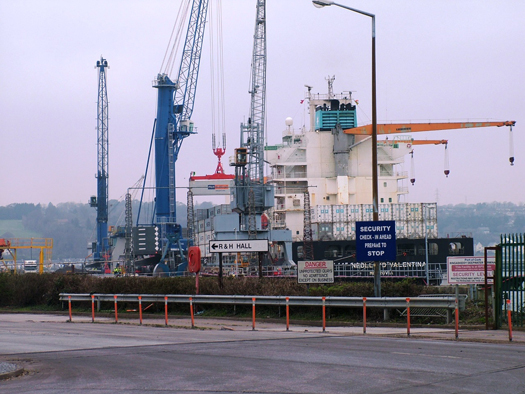
Containers unloading at the Port of Cork. Cork has already begun using the existing deepwater port at Ringaskiddy to ship containers
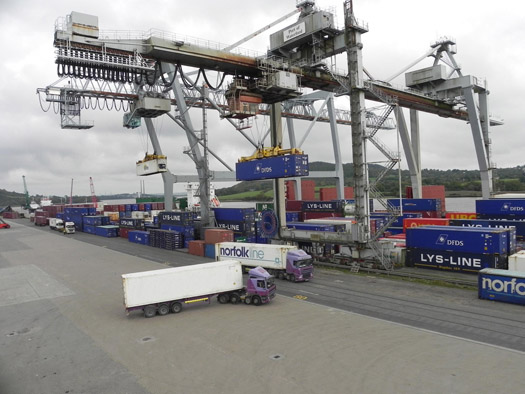
Waterford Port's dedicated container terminal at Belview. The port opposes Cork's attempt to build a new container port at Ringaskiddy
Ireland's major ports compete with each other, which suits the Government that seeks to avoid financial responsibility for them. So you have situations such as where Cork Port wants to build a container port in the lower harbour at Ringaskiddy, which Waterford Port, having developed its own container port at Belview outside the city, opposes at a planning hearing. Galway wants to develop a major port facility, claiming the Western coastline should have modern port facilities and attract more cruise ships. Other major ports are lobbying against this and being both critical and dismissive. Dun Laoghaire also wants a future in cruise liner visits. Dublin Port is less than happy with this. Cork claims to have the only dedicated cruise line terminal in the country, but as was stated at the Cork maritime conference, cruise shipping operators have no loyalty to any port and will go only where the best deals are offered to them, to cut their costs as much as possible.
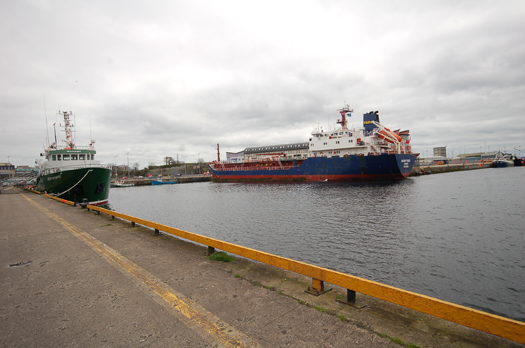
Galway wants to build a new port
While Dun Laoghaire is a major leisure marine centre, its Harbour comes in for strong criticism in the survey of the Irish Cruiser Racing Association into this year's national championships held there. The criticism focusses on what the ICRA report describes as the insistence on charging marina fees to visiting boats, something never done at other championship events around Ireland to participating boats, an attitude which visitors found unhelpful and discouraging.
If all maritime affairs were concentrated in one Department it would make them a priority in this island nation. They include and range across all aspects of the nation's life, from the sea around us, to the inland waterways, the ports, energy creation from marine sources, the fishing industry, angling, marine tourism, history, culture, all are part of a nation where people first came to the coastal areas some 9,000 years ago.
A Department of the Marine should be a leading, top-level Department of Government in this island nation. It would be economically important, could create employment, could drive development across a wide range of activities with benefit to the nation. Instead, narrow-minded, self-centred thinking and lack of foresight continues to restrict the progress of maritime affairs, causes duplication of effort and keeps marine affairs at a low national level.
I like the motto of Arklow, that County Wicklow coastal town with a great maritime tradition. As Gaeilge it reads: "Maoin na Mara are Muighin," which translates to: "In the wealth of the sea lies our hope."
That motto came to my mind at Cork City Hall, as I listened to the speeches and questions at the Irish Maritime Forum, but even that title raised the issue of duplication. It was chosen, as far as I remember, as the title for an organisation established a few years ago, by a group of mariners who formed - The Irish Maritime Forum.
Until next week, the usual wish of ..... "fair sailing" ........
Twitter: @Tom MacSweeney
A New Maritime Safety Strategy But Will Irish Maritime Administration Listen or Dictate?
#seachange – The Government is planning a new maritime safety strategy. The Irish Maritime Administration, which is effectively the Coast Guard and other aspects of maritime transport within the Department of Transport, Tourism and Sport, has decided that Ireland needs a new maritime safety culture.
The IMA was established in 2013. It comprises the Maritime Safety Policy Division, the Marine Survey Office, the Irish Coast Guard, the Maritime Transport Division and a new Maritime Services Division. In an island nation which fully respected its maritime requirements these should be within a Department of the Marine, but civil service and internal politicking ensured that it was part of the break-up of maritime responsibilities within Government, despite promises that all maritime matters would be under one Department giving the maritime sphere a higher presence in Government and despite attempts by Marine Minister Simon Coveney to bring safety matters within his Department of Agriculture, Food and Marine
While safety at sea must be embraced, when government decides to draw up new or more regulations, it is time for examination of the motives and their aim. For example, single-handed sailing is not approved of by Irish officialdom. That French Figaro Race passing through Irish waters last week and all who like to sail solo are not in favour with Irish maritime authorities.
The Maritime Administration has decided to develop a new Maritime Safety Strategy – 'Sea Change – Building a New Maritime Safety Culture.' This, it says, "will focus on building a culture of safety and will target the main causes of casualties in the maritime sector."
It will cover all types of craft being used for any purpose on Irish coastal or inland waters, including recreational craft, fishing vessels, passenger vessels and cargo vessels.
That is very wide-ranging.
There have been 134 maritime fatalities since 2002 and Minister Leo Varadkar maintains that "almost half" were the result of leisure activities on recreational craft. He is trying to parallel his road safety approach to the maritime sphere, maintaining that roads are safer as a result of regulations. That opinion would not go unchallenged. While safety is an issue that must be treated seriously there has been an obsession amongst Government with imposition of regulations in all aspects of life where Ireland is possibly the most regulated country in the EU. There remains, at present, a freedom to use the waters around our island nation and, while emphasising the need for a culture of maritime safety, any attempts by civil service mandarins to impose more controls on that freedom should be examined closely.
"The sea and any open water can be hostile and dangerous environments and demand total respect," said the Minister. I agree and by consulting with stakeholders and the general public, it would be good to reach a situation where there are no fatalities. But the Irish Maritime Administration, by some of its previous attitudes towards safety, such as attempting to shut down Coastal Radio Stations at Valentia and Malin Head, has not inspired confidence. It did not demonstrate a willingness to listen to what it was told. It has shown a more dictatorial than responsive attitude to the views of stakeholders who have brought instances to my attention. There was, for example, the RNLI provision of lifebelts with a built-in radio alert safety system to which the Coast Guard objected because control was not direct to them but would have been via the lifeboat service. So there is reason to examine a desire for more regulations.
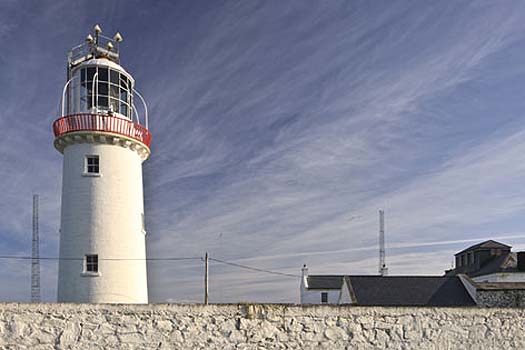
Loop Head lighthouse in County Clare
Notably, one of the points the IMA highlights in its reasons for a new maritime safety strategy is : Inadequate enforcement of regulations.
I support safety at sea, but long journalistic experience has taught me to always examine the reasons for the desire of government officials for more regulations.
The Minister has urged all stakeholders, and the general public, to engage with a consultation process open until August 29 and "to contribute their ideas to the Irish Maritime Administration.
One life lost unnecessarily at sea is one fatality too many.
One of the advantages of being an island nation is the freedom to go to sea, which is a freedom that imposes disciplines of safety on those who use our coastal and inland waters. Safety regulations are necessary but had civil service mentality been exercised in the past would there have been explorers of the sea, round-the-world voyagers and solo sailors?
I hope that this time the Irish Maritime Administration will learn the lesson of listening rather than dictating to stakeholders.
SAILING STRATEGY
There is a line in the Irish Sailing Association's Strategic Review which stuck out for me: "Racing currently forms the backbone of club activity." But is this too dominant in the sport which it appears is in a crisis of dwindling interest? The ISA has been described as a bureaucracy detached from the reality of what is going on and the new Strategy is an attempt to change that. I believe in the concept of sailing being a 'sport for all' as the ISA has previously highlighted. But can it ever be that when the perception remains of an elitist sport run by exclusive and at times unwelcoming clubs, a point which was forcefully put at this year's meeting of the South Coast Offshore Racing Association which I previously reported in Afloat?
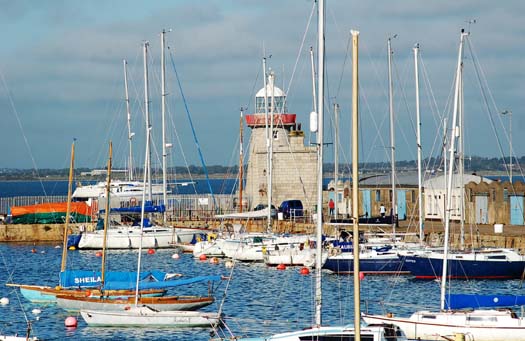
Howth Harbour in county Dublin, a popular boating venue
There are skippers who cannot find enough crew and some clubs have moved to try to accommodate this by offering crew memberships. But they may have to move further. A club structure is essential, so membership of clubs and income is vital to support them, but there are people whose only desire to go sailing may be one night a week racing when they would crew and who, in these economic times, may not be able to afford even 'crew' membership, but would crew a boat and add to the club's income on an even partial basis. While keeping an essential percentage of a boat's crewing to club members, perhaps clubs need to accommodate new styles and requirements of 'crewing' to increase the sport's popularity. The 'elitist' image, which has been fostered in the past by some clubs and their members, needs to be removed if it is to be "a sport for all" and club membership encouraged, as also that it can be for cruising and not just for racing.
THE DIFFERENT FACES OF SEA NATURE
I wrote about the nature of the sea and another example is the photos from Antarctica sent to me for my blog this week. They were taken by a lady named Lara Harrison, who was there as a medic. Look at them and reflect on what is happening in these areas due to global warming and why we all need to be conscious of the natural environment.
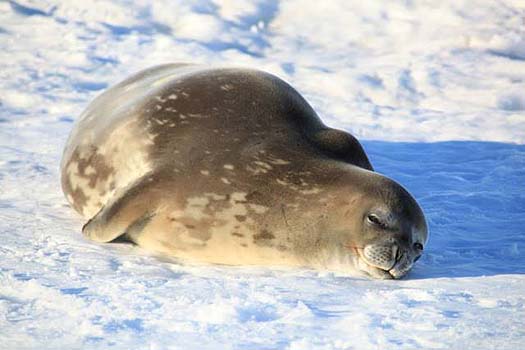
Nice cool day and (below) a bit crowded on this beach
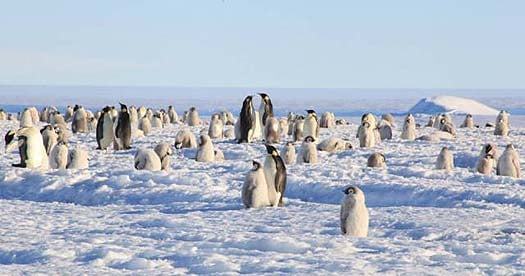
THIS ISLAND NATION ON RADIO
On the July edition of THIS ISLAND NATION monthly hour-long radio programme next week I will be talking to the last man alive from the islanders who were evacuated from the Blaskets. As a youngster he was described as "the loneliest boy in the world, whose only playmates are seagulls." I will also discuss with ISA President, David Lovegrove, the Association's new strategy; hear about Loop Head Lighthouse; a new five-man currach; the history of Kinsale Harbour and much more. The programme will be available here on the AFLOAT website and is also broadcast on Near FM Dublin 90.3; CRY 104FM Cork; and Raidio Corca Baiscinn, Clare 94.8 FM
Twitter: @TomMacSweeney



























